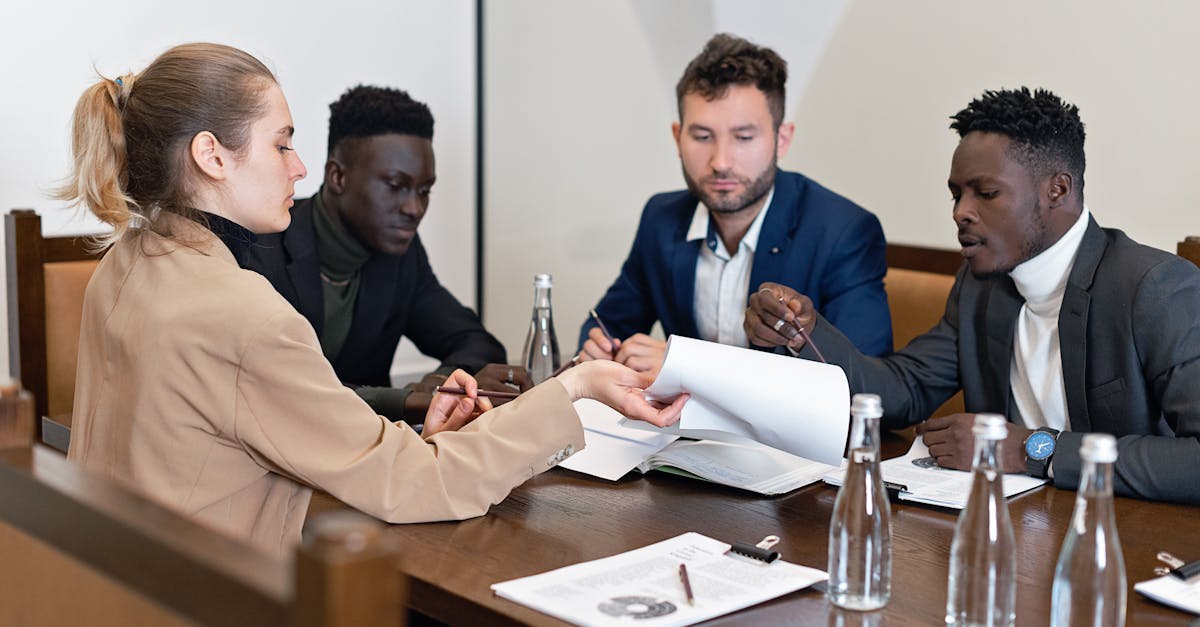
Table Of Contents
Impact of Client Input in Settlement Talks
Clients play a crucial role in settlement negotiations, as their input significantly influences the direction and terms of the settlement agreement. Involving clients in the negotiation process helps lawyers gain a deeper understanding of their clients' priorities, concerns, and ultimate goals. By actively listening to their clients' perspectives and preferences, lawyers can tailor their negotiation strategies to align with the specific needs and interests of those they represent. This client-driven approach not only fosters a sense of collaboration and trust between lawyers and clients but also increases the likelihood of reaching a mutually beneficial settlement. When lawyers prioritize client input in settlement talks,"Negotiating settlements near me," they demonstrate a commitment to advocating for their clients' best interests while striving to achieve a resolution that reflects the unique circumstances of the case.
Tailoring Solutions to Client Needs
Tailoring solutions to the unique needs of their clients is a crucial aspect of lawyers' roles when negotiating settlements. By understanding the specific circumstances, goals, and priorities of their clients, lawyers can effectively advocate for solutions that align with their clients' best interests. Negotiating settlements near me requires a deep understanding of the client's objectives and constraints, allowing lawyers to craft tailored solutions that address the underlying issues while also securing a favorable outcome for their clients.
Moreover, by tailoring solutions to their clients' needs, lawyers can ensure that the negotiated settlement meets the client's short-term and long-term goals. This personalized approach not only enhances client satisfaction but also strengthens the lawyer-client relationship, fostering trust and loyalty. When lawyers take the time to tailor solutions that resonate with their clients' unique concerns and objectives, they demonstrate a commitment to advocating for their clients' best interests in settlement negotiations.
Risks of Failing to Reach a Settlement
Failing to reach a settlement agreement can lead to a myriad of risks for both parties involved in a legal dispute. By not successfully negotiating a settlement, individuals face the uncertain and often costly outcomes of a trial. Litigation can be a lengthy and arduous process that consumes significant time and resources, especially if the case goes through multiple stages in court. For those embroiled in legal battles, the decision to pursue a settlement can be a strategic one, as it can mitigate the risks associated with a trial.
In today’s fast-paced legal environment, the options for "Negotiating settlements near me" are vast. However, the risk of not reaching a settlement remains a critical concern for legal professionals and their clients. The unpredictable nature of trials, combined with the expenses tied to prolonged litigation, underscores the importance of considering settlement negotiations early on in the legal process. It is crucial for individuals and legal representatives alike to explore all avenues for reaching an agreement outside of the courtroom to minimize the risks associated with prolonged disputes.
Uncertainty of Trial Outcomes
When faced with the uncertainty of trial outcomes, lawyers often opt for negotiating settlements rather than proceeding with litigation. This decision is heavily influenced by the unpredictable nature of court cases and the inherent risks involved. Trials can be time-consuming, costly, and there is no guarantee of a favorable outcome for either party. This uncertainty prompts legal professionals to seek alternative solutions to resolve disputes effectively and efficiently.
In seeking settlements, lawyers prioritize achieving a resolution that aligns with their client's best interests and specific needs. By engaging in negotiations, attorneys can tailor solutions that address the unique circumstances of the case and meet the goals outlined by their clients. This personalized approach ensures that the outcome not only considers the legal aspects of the dispute but also takes into account the practical implications for those involved. When individuals search for "Negotiating settlements near me," they are seeking legal guidance that can navigate the complexities of dispute resolution and secure a satisfactory agreement without the uncertainties of a trial.
Strategies for Successful Settlement Negotiations
For lawyers, negotiating settlements is a fundamental aspect of their practice. When aiming to reach a successful settlement negotiation, it is crucial to consider various strategies that can facilitate the process. Understanding the importance of communication and compromise plays a vital role in reaching mutually beneficial agreements. In the context of "Negotiating settlements near me," it becomes essential for lawyers to demonstrate professionalism and adaptability to navigate through complex discussions effectively.
Moreover, establishing a collaborative environment during settlement negotiations can significantly enhance the likelihood of reaching favorable outcomes for all parties involved. Building trust and maintaining open lines of communication with opposing counsel can foster a productive atmosphere that supports the progression towards a settlement agreement. By prioritizing the interests of their clients and employing strategic negotiation tactics, lawyers can navigate the complexities of settlement talks with confidence and skill.
Building Relationships with Opposing Counsel
Building relationships with opposing counsel is a crucial aspect of successful settlement negotiations. Establishing a certain level of trust and respect can often lead to more amicable discussions and a smoother resolution process. When parties are able to communicate effectively and work together harmoniously, it can help alleviate tension and create a more collaborative environment. This can ultimately result in a more favorable outcome for all involved in negotiating settlements near me.
Moreover, fostering positive relationships with opposing counsel can open the door to future collaborations and agreements. By demonstrating professionalism, integrity, and a willingness to work together, attorneys can build a foundation for potential future negotiations. Additionally, establishing a reputation for being fair and reasonable in settlement discussions can enhance an attorney's credibility and influence in the legal community. These relationships can be beneficial not only in resolving the current dispute but also in navigating any potential future conflicts that may arise.
FAQS
Why do lawyers prefer negotiating a settlement rather than going to trial?
Lawyers often try to negotiate a settlement because it allows their clients to have more control over the outcome, avoid the uncertainties of trial, and potentially save time and money.
How does client input impact settlement negotiations?
Client input is crucial in settlement negotiations as it helps lawyers understand their clients' priorities, goals, and concerns, allowing them to tailor the settlement to meet the clients' needs effectively.
What are the risks associated with failing to reach a settlement?
Failing to reach a settlement can lead to prolonged legal proceedings, increased costs, and uncertainties in trial outcomes, which may not always align with the clients' best interests.
What makes trial outcomes uncertain compared to settlements?
Trial outcomes are uncertain because they depend on various factors like evidence, witnesses, jury perceptions, and judicial rulings, whereas settlements offer a more predictable resolution based on mutual agreements.
How can lawyers strategize for successful settlement negotiations?
Lawyers can enhance their chances of successful settlement negotiations by building strong relationships with opposing counsel, accurately assessing the case strengths and weaknesses, and effectively communicating their clients' needs and objectives.


